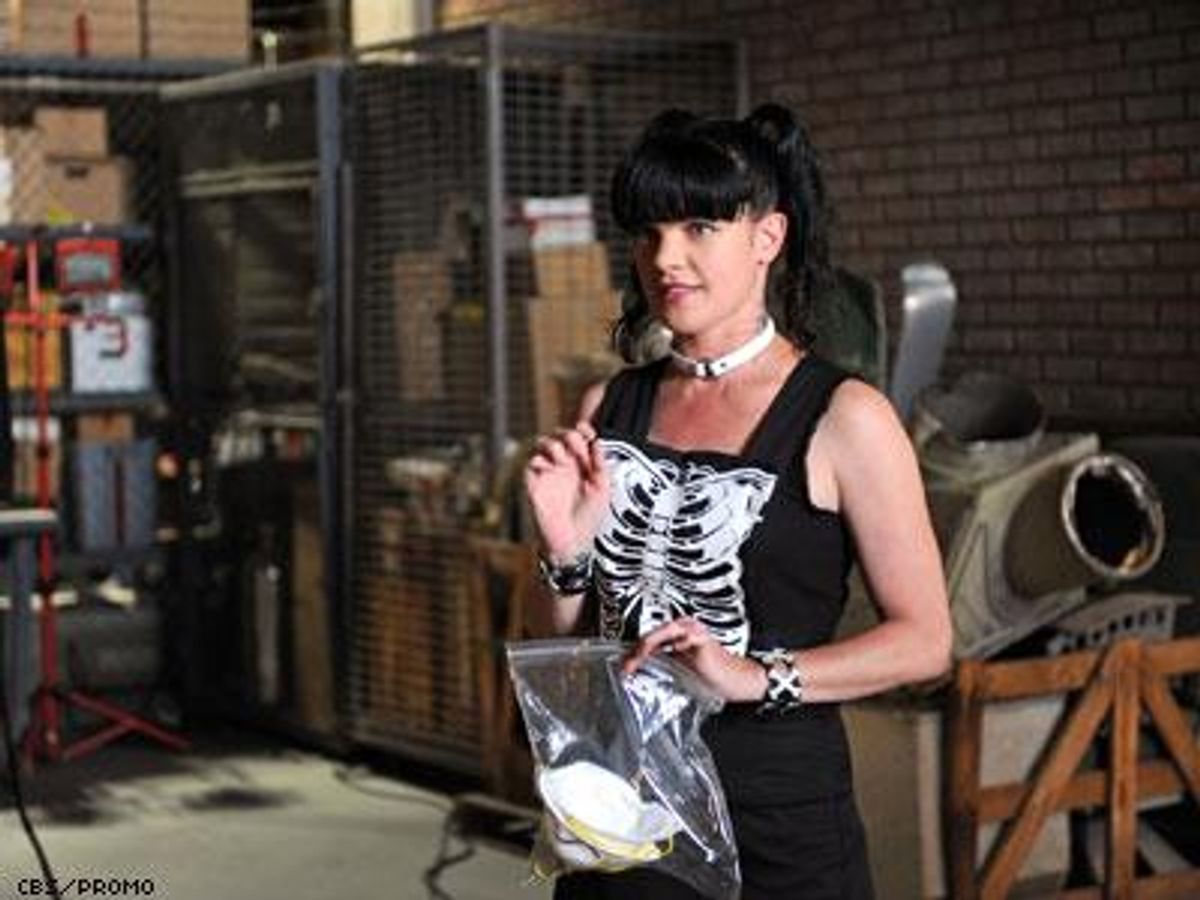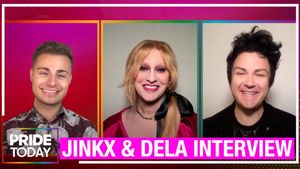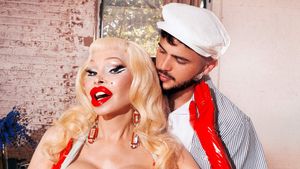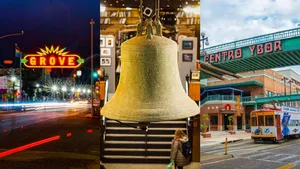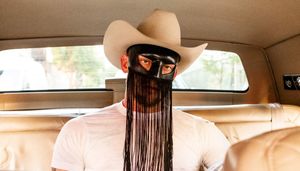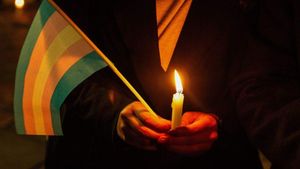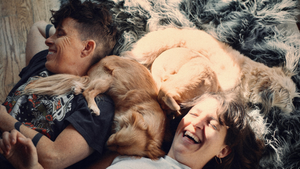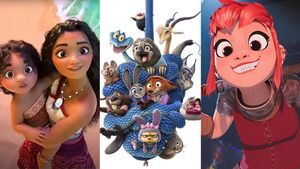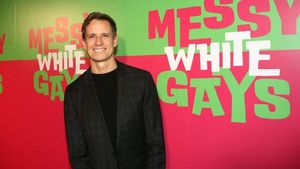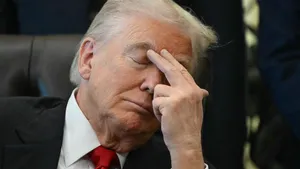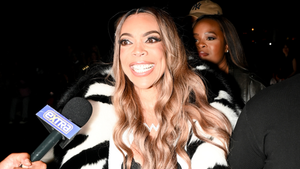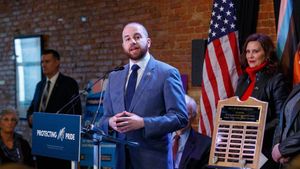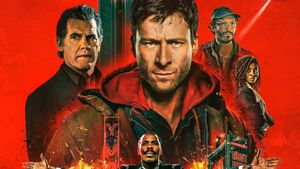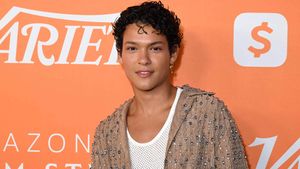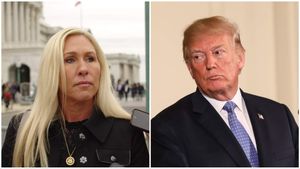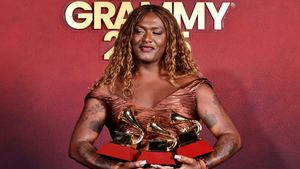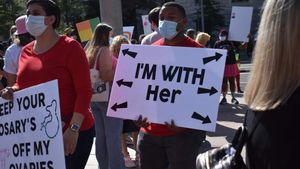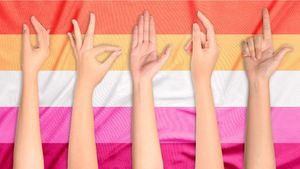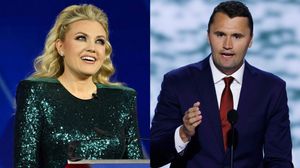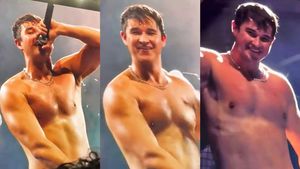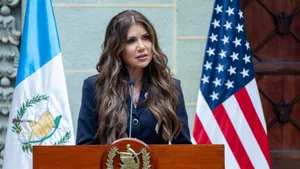With her gothy punk clothes and Bettie Page bangs, Pauley Perrette still looks a bit like the New York club scene bartender she once was—minus the white Mohawk that first attracted TV producers and modeling agents in the ’90s. Today, as Abby Sciuto, the forensic wunderkind with a heart of gold on CBS’s number 1 drama, NCIS, Perrette is one of television’s most popular actresses. She’s also one of the most active in support of HIV causes. In August, Project Angel Food, a Los Angeles–based organization that’s prepared and delivered more than 7 million meals to people with HIV/AIDS or other life-threatening illnesses since 1989, honored Perrette, an active board member, for her philanthropic leadership. How the actress found the time (Project Angel Food is one of 30 charities she’s involved with, including groups focusing on marriage equality, global disaster assistance, and animal rights) is another story altogether. We caught up with the New Orleans–born Perrette to talk about why activism is important, the role churches should play in HIV outreach, and what it was like to portray an HIV-positive woman on the silver screen.
Why is using your celebrity to further causes, especially HIV and AIDS awareness, important to you?
I remember once when I first moved to New York City, when I was like 21. This was before the drug cocktail, and the environment around HIV had not even evolved to where it is now. But it was Christmas Eve and I was alone in New York, and I didn’t have any money at all [laughs], I was always broke and alone. So, I went down to 14th Street and bought a little bag of Christmas tree balls and took them over to St. Vincent’s Hospital and went up to the HIV ward. I just went in and gave them each a little Christmas ball. What struck me the most was that everyone in there was alone, and that really broke my heart.
I remember when so many of my friends were dying.
Fortunately, I missed the first wave of where everybody was dying. I think a lot about all of the wonderful things that are happening with HIV research. I have so many friends now who are HIV-positive and they’re living completely normal, healthy lives. But also for young people, the medications are working well enough to let people live their lives so well that people think HIV is over. And it’s so not over.

There’s a huge percentage of people who don’t know they’re positive, and many people actually get diagnosed so late in the game their HIV turns into AIDS.
That happened to my friend. He just had no idea, and just got sick and died. It was fast. The part about getting the word out there, getting in touch and being careful is so important and then just as a civil rights activist, it’s so important to take this stigma away, because that’s so heartbreaking to me. I want people to see me with my arms wrapped around my friends who are HIV-positive. Another thing that’s been really important, is that I go to this amazing church in Hollywood that’s over 100 years old.
The Hollywood United Methodist, right?
Right, and it’s right in the center of Hollywood and our giant bell tower is there and the two big beautiful red ribbons are there and it means so much to me. A lot of bigotry [against gay and HIV-positive people] started at the church level, and we have a responsibility to combat that.
You were born in New Orleans. The South right now is one of the regions with the most HIV transmissions, and the least amount of HIV education in the country.
Well, those two things are a self-fulfilling prophecy. How can it be something that you can’t talk about because it’s evil or whatever baloney they say? Then how on earth are you supposed to get education out there to people to protect themselves?
You’ve actually played an HIV-positive woman in the 2009 film, To Comfort You. What was that like?
There was a lot going on with that film. It was a really beautiful and heavy film. I remember when I was preparing for that and lost a lot of weight to play that role. The people that I made that movie with, we all had to volunteer with Project Angel Food. Now I’m on the board there.

Why haven’t we seen more portrayals of people with HIV?
I think people are still scared and they still don’t know enough. Also, when HIV and AIDS has been portrayed, there hasn’t been much about someone getting sick and then getting better. It’s interesting that you just said that, because my fiancé, he’s now in the restaurant business, but when he was in his 20s he played the lead in one of the first movies about someone who was HIV-positive.
What was the name of it?
Heaven’s a Drag. That was 1994, and it was a big deal they made a movie about someone with AIDS.
Tell us about being honored by Project Angel Food recently.
It was a huge, huge honor. It was the same award given to Elizabeth Taylor and Sharon Stone. It was pretty huge. All the people from Project Angel Food were there, and that was amazing because they’re just people who volunteer there, writers and directors and people that work on films. The beauty of Project Angel Food is that [its clients] not only look forward to the food and nourishment but also the company—somebody just coming by and saying hello and checking on them.
Let’s talk about your career a little bit. Does your background in criminal science help on set?
I can promise you this, my background in sociology has absolutely been paramount to being a civil rights activist. I love sociology, it’s my science. And it really is understanding people and society and the way we interact with each other. It’s just created an incredible base for me as an actor and a civil rights activist.
You’ve been on NCIS since 2003. Was there a moment in your career when you felt like, OK, I really made it?
Not really. But this is true: I’m extremely frugal. I don’t wear any jewelry. All of my clothes come from Out of the Closet thrift stores. And I always say that on the red carpet, because all the money I spend on my dresses goes towards AIDS research. [Reporters] will ask, “Who are you wearing?” And I always say, “AIDS research!” But I’m such a private person and fame is so uncomfortable for me. Sometimes I have the feeling, What have I done to my life?
You’re consistently ranked as one of the most likeable celebrities in Hollywood. What’s your secret?
I don’t know! I think a lot of that has to do with people loving Abby, my character. But I’ve always been a volunteer, I’ve always been doing these things, I’ve always been rescuing animals—I have three of them sleeping on me right now! A lot of the acts of kindness we can do are the easiest things in the world. The most powerful thing you can do is free, and that’s to be kind.
